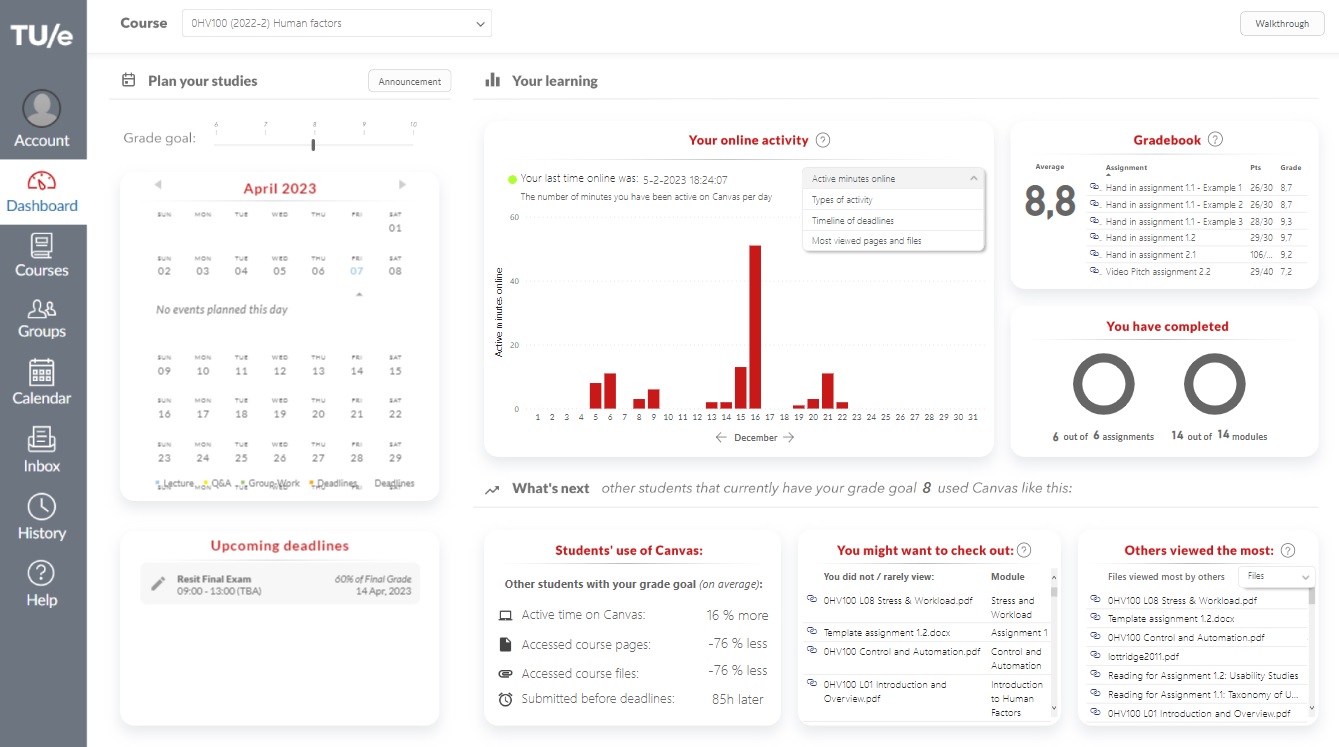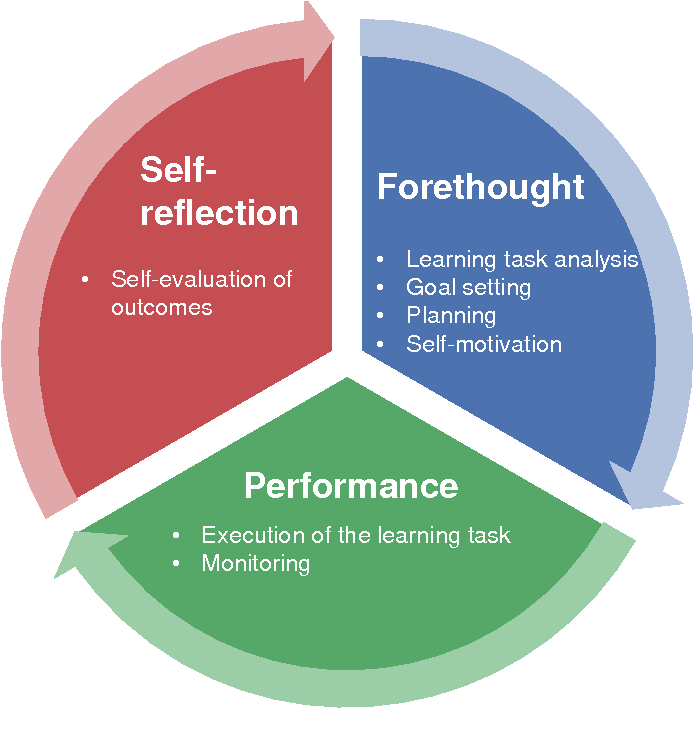

As online learning transforms into a powerful tool for institutions to reduce costs and expand access, it also opens the door to rich behavioral insights. Every click, scroll, and interaction reveals how students engage, struggle, and succeed—turning learning platforms into a goldmine of data. As a UX-/Product Designer and a Data Analist, this data becomes the key to crafting smarter, more intuitive educational experiences that adapt to real student needs.
In my Master Thesis Project , I focused on how we can develop a learning dashboard for TU/e's Canvas-platform in a way that is grounded in learning sciences and truly facilitates online learning. Through an iterative user-centered design approach—using frameworks from self-regulated learning theory—I designed and implemented a learning dashboard for TU/e's (Eindhoven University of Technology) online learning platform Canvas. The dashboard visualizes academic performance and provides dynamic, course-level recommendations on how students can improve their learning (i.e., based on aggregate models of clickstream-data and historical academic results).
“This project represents the pinnacle of my growth as a UX designer—not just because of the outcome, but because of the journey. From concept to release, I took full ownership of the design process while collaborating with an incredible, multidisciplinary team. What truly sets this project apart is how it allowed me to bring my full skill set to the table: blending UX design with data analytics, engineering, and stakeholder management. It challenged me, pushed my capabilities, and ultimately became a true reflection of what I can deliver when I’m all in!”— Bram
Self-regulated learning is about taking control of your learning journey. It involves setting goals and planning how to achieve them. As you work towards your goals, you monitor your progress and adjust your strategies to improve. After each learning experience, you reflect on how well you did and use that insight to set new goals and improve your learning methods. These skills, like goal-setting and self-assessment, are crucial for academic success and skill development. Knowing this, how can we facilitate self-regulated learning for students that are learning online?
Learning dashboards are often built around the principles of self-regulated learning (SRL), yet their implementations vary widely—and so do their results. In this research-driven UX project, I explored how different interpretations of SRL theory in dashboard design affect students’ cognition, emotions, and academic outcomes over time.

Through an iterative user-centered design process—including several phases of user interviews, creating personas, storytelling, wireframing, and prototyping—I created several designs in AdobeXD that differed in the extent to which they theoretically supported self-regulated learning and how they met the needs as proposed by students themselves. I then compared and further improved these designs through A/B- and usability-testing, and I presented my work to all stakeholders involved in the project continuously while using their feedback to steer course when necessary.
Eventually, I implemented the dashboard fully in PowerBI and HTML/CSS/JavaScript using real clickstream data that was generated from students' use of university's learning management system as well as records of their academic progress such as their grades and submissions. The dashboard is also fully designed according to the TU/e house style and branding regulations. Eventually, the dashboard was enrolled for all participating students in one of the university's Bachelor programs. The dashboard used real-time data from students using an Azure Databricks connection and single sign-on with the TU/e's learning management system. The different versions of the dashboard were then evaluated and compared using a variety of usability metrics as well as cognitive and affective learning outcomes.
I designed and implemented a data-rich learning dashboard that supports self-regulated learning (SRL) for students at Eindhoven University of Technology (TU/e). By integrating behavioral data, academic performance records, and SRL theory, the dashboard delivers actionable insights to students and supports long-term academic success. This project allowed me to blend UX design, data mining, and dashboard engineering to create an end-to-end solution—from research and ideation to implementation and evaluation.
The project was such a success that it's currently being implemented at the Eindhoven University of Technology for students to use within their Canvas-environment. The research paper —which discusses in detail a literature review of self-regulated learning theory and an extensive illustration of the design and research methodologies (i.e., including the results from the qualitative and quantitative analyses)—will be published in the Learning Analytics and Knowledge Conference-journal and has been used as inspiration for multiple MSc Human-Technology Interaction theses after my original publication.